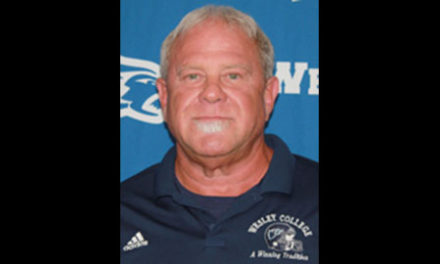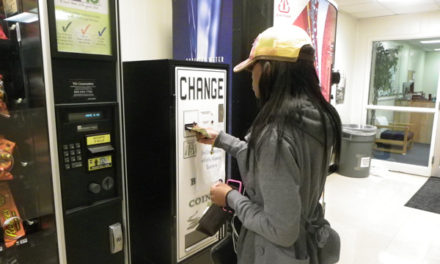By Erich Gillespie, (Whetstone Staff)
Although Wesley College’s nursing program has been ranked in the top 50 graduate programs in the country by US News, its undergraduate students may be “under†performing.
Nursing is Wesley’s second-largest program, has simulation labs, its own wing in the underground of the college center – and now a new building.
But then there are the stats.
The National Council Licensure Examination (or NCLEX) is an assessment for the licensing of nurses in the United States.
In 2012, 58 percent of Wesley students who took the NCLEX assessment exam passed – compared to 94 percent at Delaware Tech, 92 percent at the University of Delaware and 76 percent at Delaware State University.
“The NCLEX is the genuine foundation and platform that distinguishes you between a graduate and a registered nurse,†said DSU junior nursing major Destiny Summers. “This is imperative because, ideally, if you pass, it assures that you have the knowledge and intellectual competence to put toward your daily workload and ensure that your patients are safe.â€
Martha Henshaw, a recent graduate of Wesley’s nursing program, said the test was essential.
“The NCLEX is the most important and scariest thing to encounter after graduation,†Henshaw said. “This test can take over four hours and months of preparation. And it determines how soon you get your RN position in a hospital setting.â€
Dr. Bob Contino, Chair of Nursing, said there are several factors that hurt students when trying to pass the test.
“The test is given online, something many students have not had much familiarity with, and it a high stakes test,†he said “– pass or you cannot practice. This tends to lead to higher levels of anxiety in those taking the exam.â€
Students also may be waiting too long to take the exam, he said.
“Statistical analyses support the fact that if students test within the first 90 days they are much more likely to pass the exam.
Sometimes students decide to take a break, and it will decrease the likelihood of their success.â€
The nursing department recently received a boost to its program with Wesley’s acquisition of the massive J. Allen Frear Federal Building, a 36,000 square foot building that will primarily be used by nursing majors.
“The new building is a great recruiting tool for a program that is already achieving so much,†said Frank Fiedler, a math professor at Wesley College. “Usually, nursing majors that identify themselves do pretty well in my classes. Because of the pressure within the nursing department, their work ethic generally is greater.â€
But then there are the stats.
Of the seven Delaware schools that offer at least an associate’s degree in Nursing, Wesley College nurses finished last five out of six years, finishing second to last in 2011, according to the Delaware Division of Professional Regulation.
“If I were to allocate the space that the Frear building provides, I would divide it amongst multiple programs, allowing more programs to grow and progress,†said Jeramie Powell, a senior philosophy major. “It’s important that Wesley College grows in all directions.â€
Contino said that despite the test percentages, nursing students have a nearly 90 percent pass rate within nine months of graduation.
“The test scores give a somewhat false picture of the program,†he said. â€Our graduates often receive preferential hiring. Wesley nurses are welcomed in all area hospitals and we get very positive feedback on graduate surveys from employers. In other words, despite lower scores than we would like for first time test passing – Wesley produces an excellent nurse.â€




